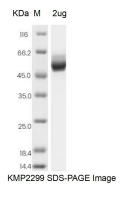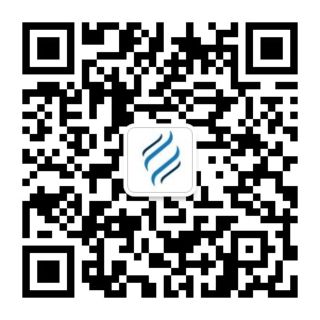Mouse CD152 Protein, His Tag
-
产品编号
KMP2299
-
别名
细胞毒T淋巴细胞相关抗原, Cytotoxic T-lymphocyte protein 4, CD152
-
规格
- 50ug
- 100ug
- 200ug
| Alias | 细胞毒T淋巴细胞相关抗原, Cytotoxic T-lymphocyte protein 4, CD152 |
| Catalog Number | KMP2299 |
| Product Description | The Mouse CD152 Protein(KMP2299) is produced in HEK293 Cells and the target gene encoding Ala37-Asp161 is expressed with a 6His tag at the C-terminus. |
| Molecular Name | CD152 |
| Species | Mouse |
| Host | HEK293 Cells |
| Size | 50ug, 100ug, 200ug |
| Purity | >95% as determined by SDS-PAGE |
| Purification | Affinity purification |
| Endotoxin | <1.0 EU/ug determined by the LAL method |
| Formulation | 20mM PB, 150mM NaCl, pH7.4 |
| Background | Mouse Cytotoxic Tlymphocyte 4(CTLA-4,CD152), is a type I transmembrane T cell inhibitory molecule. mouse CTLA4 cDNA encodes 223 amino acids(aa) including a 35 aa signal sequence, a 126 aa extracellular domain(ECD) with one Ig-like V-type domain, a 21 aa transmembrane(TM) sequence, and a 41 aa cytoplasmic sequence. Within the ECD, Mouse CTLA-4 shares 68% aa sequence identity with human. CTLA4 is similar to the T cell costimulatory protein CD28 since both of the molecules bind to CD80 and CD86 on antigen-presenting cells. CTLA4 transmits an inhibitory signal to T cells, whereas CD28 transmits a stimulatory signal. Intracellular CTLA4 is also found inregulatory T cells and may play an important role in their functions. T cell activation through the T cell receptor and CD28 leads to increased expression of CTLA4. Genetic variations of CTLA4 have been associated with susceptibility to systemic lupus erythematosus(SLE), Gravesdisease(GRD), Celiac disease type3(CELIAC3) and Hepatitis B virus infection(HBVinfection). |
| SDS-PAGE |  |
| Predicted Molecular Weight | 14.56 kDa |
| Storage Condition | Aliquot and store at -20℃ to -80℃. Avoid repeated freezing and thawing cycles. |
| Shipping Condition | In general, the proteins are provided as lyophilized powder which are shipped at ambient temperature. They are shipped out in dry ice if supplied in liquid form. |
| Uniprot ID | P09793 |
| Function | Inhibitory receptor acting as a major negative regulator of T-cell responses. The affinity of CTLA4 for its natural B7 family ligands, CD80 and CD86, is considerably stronger than the affinity of their cognate stimulatory coreceptor CD28. |





 0
0
